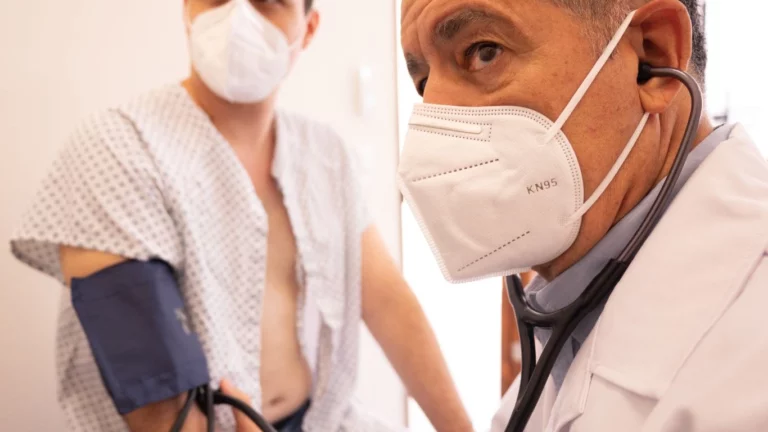Can Asthma Cause Fatigue After Talking? Surprising Truth Revealed
If you’ve ever asked yourself, can asthma cause fatigue after talking, you’re not alone. I’ve had countless patients look at me after a short conversation and say, “I don’t know why, but I feel completely drained just from talking.” As a pulmonary nurse practitioner, I’ve seen firsthand how asthma doesn’t just affect the lungs—it impacts your whole body, including your energy levels. Talking, something we often take for granted, can become a real challenge when you’re battling asthma. Let’s dive into why that happens and what you can do about it.
Understanding the Link Between Asthma and Fatigue

What Happens in the Body During a Conversation?
Talking might seem like a simple act, but it actually requires coordination between your brain, vocal cords, respiratory system, and even your diaphragm. When someone has asthma, these systems are already under a lot of stress. You’re working harder just to breathe normally. Now throw in talking—especially prolonged or animated conversations—and your respiratory muscles have to work overtime.
That’s when the fatigue creeps in. You may start off feeling fine but suddenly hit a wall mid-sentence. You might notice your chest feels tight, or you’re gasping a little by the end of a story. It’s not just in your head. The body is redirecting energy to compensate for inefficient breathing, and that drains your battery—fast.
The Breathing-Talking-Fatigue Triangle
When someone with asthma talks, here’s what’s really going on:
- Decreased lung function makes it harder to project your voice or speak in full sentences.
- Air trapping occurs, where air gets stuck in the lungs, increasing the feeling of breathlessness.
- Overworked respiratory muscles lead to quicker exhaustion.
I’ve had patients describe it as feeling like they just ran a sprint after a five-minute phone call. And honestly, it makes perfect sense physiologically.
Fatigue After Talking: A Real Symptom for Many Asthma Patients

Why Isn’t This Talked About More?
Fatigue isn’t the first symptom that comes to mind when people think about asthma. Coughing, wheezing, and shortness of breath get all the attention—but that constant, nagging tiredness? It’s overlooked far too often. And yet, it’s one of the most disruptive symptoms my patients report, especially when it shows up after something as normal as a casual chat.
Here’s a bit of a reality check from my clinic days: I’ve seen patients in their 30s and 40s—otherwise active and fit—who can’t make it through dinner conversation without feeling wiped out. They weren’t exaggerating. Their oxygen saturation might still look okay on a pulse ox, but their bodies were clearly signaling exhaustion.
Could It Be Vocal Cord Dysfunction or Something Else?
In some cases, asthma-related fatigue after talking overlaps with other conditions, like:
- Vocal Cord Dysfunction (VCD) – where the vocal cords tighten or close when they shouldn’t.
- Anxiety-related breathing patterns – people unintentionally hyperventilate during stressful conversations.
- Deconditioning – when asthma prevents physical activity over time, it can lead to overall body fatigue even during low-effort tasks like talking.
So, while asthma may be the root issue, there are often layers to uncover. And trust me, it’s not in your head. These things are very real and deserve serious attention.
Signs That Your Asthma Is Draining Your Energy

How to Recognize Fatigue That’s Tied to Asthma
Let’s break it down. If you’re wondering whether your post-conversation fatigue is tied to asthma, here are some clues to watch for:
- You feel breathless during or right after talking, even when sitting down.
- Your voice gets hoarse or weak halfway through speaking.
- Your chest feels tight after speaking, especially in long sentences.
- You feel like you need a nap after a basic conversation.
I always tell my patients to trust their instincts. If you’re noticing these patterns consistently, it’s worth mentioning them to your provider. It’s easy to dismiss fatigue as “just being tired,” but if it follows a conversation and you have asthma—it’s probably related.
From the Clinic: A Real-Life Scenario
Let me share a quick story. A patient of mine, a high school teacher named Maria, came in absolutely frustrated. She told me she felt “lazy and foggy” every day after teaching. Turns out, her asthma was flaring up during class—not in dramatic ways, but subtly, just enough to drain her energy by 3 p.m. daily. Once we adjusted her maintenance inhaler and coached her on breath pacing while talking, her fatigue dropped by half within a month.
It’s not always about medication. Sometimes it’s about strategy and being kind to your body.
Why Talking Triggers Fatigue in Some Asthma Patients

Let’s Talk About Breathing Patterns
Here’s a little insight from my time working with chronic respiratory patients: the way you breathe while you talk has a huge impact on how your body reacts. For folks with asthma, breathing tends to get shallow and quick, especially during physical exertion or—yep, you guessed it—even during a conversation. You end up speaking more on exhalation, and sometimes, people don’t pause enough to catch a proper breath. That leads to fatigue fast.
In fact, one of my patients—Tom, a retired firefighter—once told me he’d feel more tired after catching up with neighbors than after mowing his lawn. After monitoring his oxygen levels during speech, we noticed little drops happening right in the middle of conversations. It was subtle, but real.
Oxygen and Energy: A Delicate Balance
Let’s break it down: oxygen is fuel. If your lungs aren’t delivering enough of it efficiently—because asthma is restricting airflow—your brain and muscles don’t perform well. That includes the muscles responsible for speech and breathing. Your body will try to compensate by working harder, which burns more energy. That’s where the tiredness creeps in after talking.
Some asthmatics also experience “air hunger”—that feeling where you just can’t get a satisfying breath, even if your oxygen stats look normal. That constant sense of struggle is mentally and physically draining. No wonder fatigue shows up so quickly after something as normal as talking.
Managing Asthma-Induced Fatigue After Talking

Breathing Techniques That Actually Help
One of the things I always go over with patients is intentional breathing. These techniques can seriously make a difference:
- Pursed-lip breathing – Inhale through the nose and exhale slowly through pursed lips. It helps control shortness of breath.
- Diaphragmatic breathing – Focus on breathing from your belly instead of your chest. More oxygen, less effort.
- Pause and speak – Speak in short bursts, pause often, and don’t rush. It gives your lungs time to recover.
These might sound basic, but I’ve had patients come back after a few weeks and say, “I can actually finish a phone call without crashing now.” That’s a huge win.
Environmental Triggers During Conversations
Believe it or not, where you are when you’re talking matters. If you’re trying to hold a conversation in a dusty room, around strong perfumes, or in cold dry air, your asthma might be triggered even if you’re just sitting down. All of that adds to the strain on your respiratory system and ultimately increases fatigue.
I had one patient who would always feel exhausted after Zoom meetings from home. Turns out, her space heater was kicking up dust, which was subtly aggravating her asthma during calls. Once she got an air purifier and vacuumed more often, things improved significantly.
Nutrition and Hydration: Your Secret Weapons

Food That Fuels, Not Fights
What you eat can either support your respiratory system or make things worse. When your body is running low on fuel, talking becomes more tiring. And if you’re eating a diet that promotes inflammation, you’re likely making your asthma harder to manage. Here’s what I recommend from a nutritional standpoint:
- Omega-3 fatty acids – Found in salmon, walnuts, and flaxseeds, they help reduce inflammation in airways.
- Antioxidant-rich fruits and veggies – Berries, spinach, kale, etc. can help reduce oxidative stress in the lungs.
- Limit dairy and processed foods – For some people, these can increase mucus production or inflammation.
Oh, and hydration? Seriously underrated. Dry airways are more prone to irritation and fatigue. I always tell my patients, “Drink water like it’s medicine.” Because honestly, it kind of is—especially if you talk a lot and want to stay sharp and energized.
Supplements Worth Talking About
Now, I’m not saying you need to go out and buy a cart full of supplements, but certain ones can be helpful when taken with professional guidance:
- Magnesium – Helps with muscle relaxation and can ease bronchial spasms.
- Vitamin D – Low levels are common in people with asthma and can impact immune response.
- Quercetin – A natural flavonoid that some studies suggest might help with respiratory inflammation.
Of course, always consult your provider before starting anything new. But in my experience, the right supplement at the right time has turned things around for a few of my most fatigued asthma patients.
How to Pace Yourself While Staying Social

Don’t Let Asthma Silence You
Let me be super clear—just because asthma causes fatigue after talking, doesn’t mean you have to retreat into silence. One of the biggest emotional challenges I see with patients is feeling like they can’t fully engage in social life. That isolation adds stress, which in turn can trigger even more symptoms. It’s a vicious cycle.
Here are a few strategies that help maintain your social life without burning out:
- Take breaks mid-conversation – Excuse yourself to the restroom or step outside for a minute. Give your lungs a chance to reset.
- Set expectations with friends or coworkers – Let them know if you need to pause or slow the pace a bit. Most people are more understanding than you think.
- Use tech to your advantage – Texting or voice messages can take the pressure off real-time conversations.
I remember a patient who was terrified of attending her book club because she couldn’t get through one comment without feeling winded. We worked on breath control and pacing, and she started contributing again—just shorter bits at a time. Small victories like that can rebuild confidence.
Building an Asthma-Friendly Lifestyle to Reduce Talking-Related Fatigue

Track Your Patterns and Triggers
Let me tell you, one of the most powerful tools in your asthma toolkit isn’t found in a pharmacy—it’s your own journal. When I work with patients who experience fatigue after talking, I often ask them to keep a symptom diary. Jot down when the tiredness hits, what you were doing before it started, how long it lasts, and any other symptoms like tightness or dizziness. It doesn’t have to be fancy—just consistent.
One of my patients, Sharon, realized through journaling that her fatigue got worse on days she skipped breakfast or had long back-to-back meetings. We made some adjustments—lighter breakfasts that were easier on her stomach, and adding 10-minute rest periods between Zoom calls—and it honestly changed her quality of life.
Improve Your Sleep Hygiene
Here’s something not enough people talk about: poor sleep can amplify asthma symptoms, and asthma can mess with your sleep. That combo is a perfect storm for next-day fatigue, especially after something seemingly simple like talking. If you’re waking up tired and already feel low-energy before noon, no wonder chatting wears you out.
Try implementing a few of these strategies:
- Use a humidifier if dry air worsens your breathing at night.
- Keep your inhaler by your bed in case of nocturnal symptoms.
- Elevate your head with an extra pillow to help airflow while sleeping.
Also, get tested for sleep apnea if you have asthma and still feel drained despite doing everything “right.” You’d be surprised how often these two conditions team up to wreak havoc on your energy levels.
When to See a Specialist for Fatigue After Talking

Don’t Push Through—Get Evaluated
I’ve seen it way too often—people normalize their symptoms for years before finally coming in. “I just thought I was out of shape,” or “Maybe I’m just getting older.” But if you’re feeling winded, tight-chested, and downright exhausted after a basic conversation, please don’t brush it off.
Ask yourself:
- Do you feel fatigued after speaking even when you’re otherwise rested?
- Have your asthma symptoms been flaring more frequently?
- Is fatigue interfering with your daily activities or work?
If the answer to any of those is yes, it’s time to talk to a pulmonologist or asthma specialist. They may recommend updated spirometry, adjust your maintenance medications, or investigate overlapping issues like VCD or anemia. The goal isn’t just better asthma control—it’s better quality of life.
Inhaler Technique Matters More Than You Think
Quick story: I had a young professional in her late 20s come in feeling totally defeated. She’d been on a controller inhaler for months but wasn’t seeing any improvement. Turns out, she was spraying and immediately inhaling without holding her breath after. Once I taught her the correct inhaler technique (and had her use a spacer), her energy levels improved dramatically within two weeks.
Always review your inhaler technique—even if you’ve used it for years. Mistakes are more common than you’d think.
Practical Tips to Stay Energized During Conversations

Use Body Language to Save Your Breath
Talking isn’t just verbal—it’s also visual. Using hand gestures, facial expressions, and posture can help you communicate more effectively without relying entirely on spoken words. This helps cut down on speech time and energy use while still keeping the conversation flowing naturally.
Especially in work or social settings, becoming more expressive nonverbally can be a game-changer. One of my long-time patients, who worked in customer service, began using expressive gestures and brief phrases during calls. She said not only did her energy improve, but her customer satisfaction scores actually went up!
Practice Conversation in Safe Spaces
It might sound silly, but practicing how to talk more efficiently—with breaks, pauses, and breath support—can make conversations way less taxing. Find someone you trust (or practice in front of a mirror) and rehearse delivering information without overexerting yourself.
Many of my patients do better once they give themselves permission to pause. Don’t feel like you have to fill every silence. Breathing room—literally and figuratively—goes a long way.
Empowering Yourself to Advocate for Better Care
You Know Your Body Better Than Anyone
Trust me, after years in pulmonary care, I’ve learned that the most insightful people in the room are often the patients themselves. If you say “can asthma cause fatigue after talking?”, and your provider shrugs it off—find someone who listens. You deserve more than just symptom control; you deserve solutions that actually fit your life.
Print this article, bring your journal, and talk about your experience honestly at your next appointment. Your voice matters, even if it sometimes comes with fatigue.
Keep Educating Yourself and Others
Asthma fatigue, especially after talking, isn’t widely discussed—but that doesn’t mean it’s rare. In fact, sharing what you’re going through may help someone else who hasn’t put the puzzle pieces together yet. Whether it’s in your family, your friend group, or an online community, every conversation matters (even the ones you have to pause to breathe).
References
- National Institutes of Health (NIH)
- Health.com
- Mayo Clinic
- Centers for Disease Control and Prevention (CDC)
Disclaimer
This article is for informational purposes only and is not intended as a substitute for professional medical advice, diagnosis, or treatment. Always consult a qualified healthcare provider with any questions you may have regarding a medical condition.

Bianca Nala is a compassionate Nurse Practitioner with a strong background in primary and respiratory care. As a health writer for Healthusias.com, she combines her clinical expertise with a talent for clear, relatable storytelling to help readers better understand their health. Bianca focuses on topics like asthma, COPD, chronic cough, and overall lung health, aiming to simplify complex medical topics without losing accuracy. Whether she’s treating patients or writing articles, Bianca is driven by a single goal: making quality healthcare knowledge accessible to everyone.







